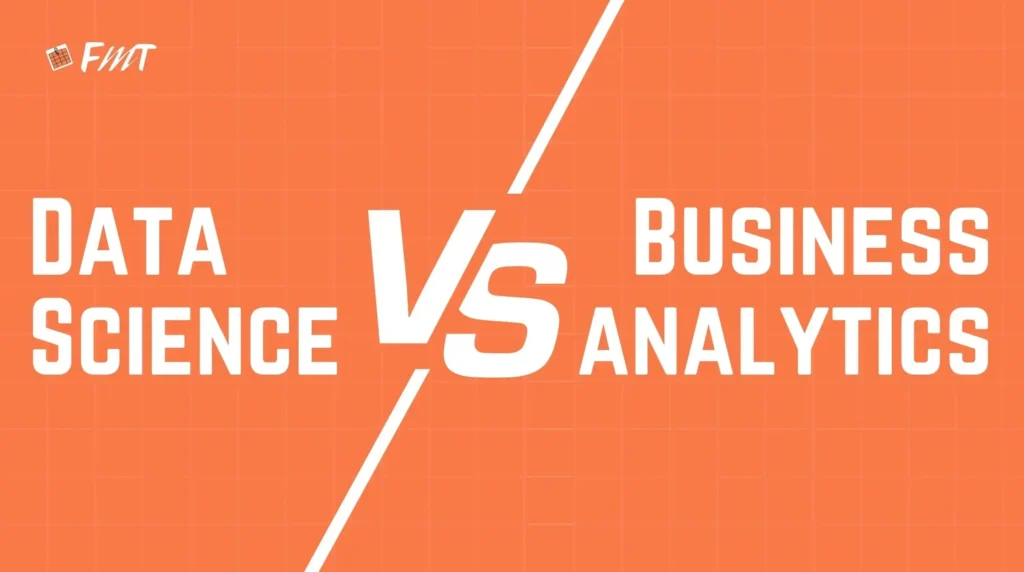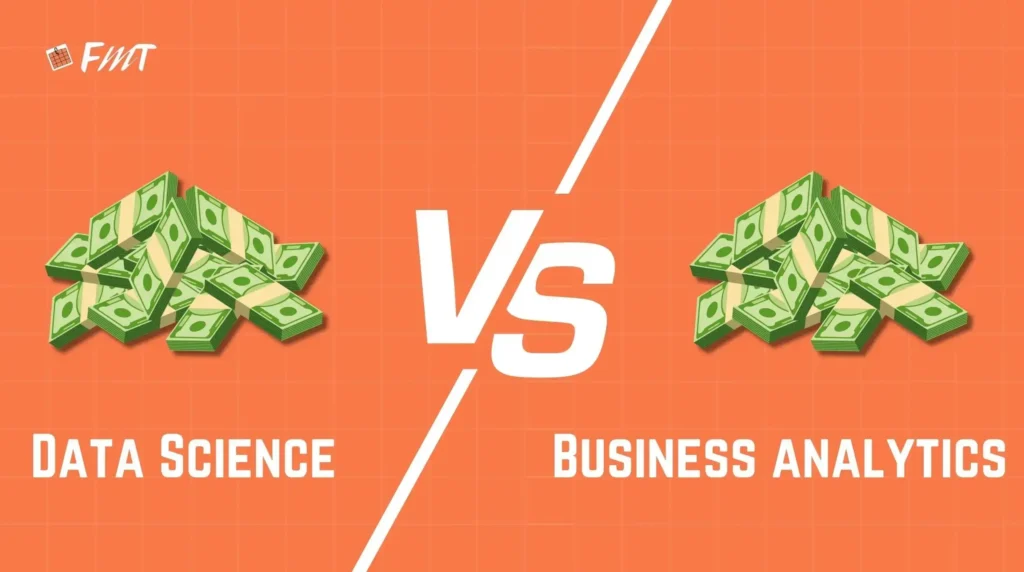Deciding between a career as a business analyst or a data scientist can be quite tricky, but it’s vital for your future. Both career paths offer incredible opportunities and are rooted in data, but the day-to-day tasks, skills required, and the overall focus of each role are quite different. Let’s list out the similarities, differences, and what you can expect from each role to help you make an informed decision.
Data Science vs Business Analytics: The Key Differences
While both fields involve working with data, the focus and end goals differ:

- Data Science is a comprehensive field requiring professionals to analyze complex data sets, build machine learning models, and solve technical challenges. Data scientists need a deep understanding of algorithms, programming, and statistical techniques.
- Business Analytics is a subset of data science focused particularly on business problems. Business analysts use data to unleash trends and insights that help organizations improve performance, make strategic decisions, and solve operational challenges.
Cost of Data Science vs Business Analytics Programs
Generally, the cost of a Master’s in Data Science and a Master’s in Business Analytics is similar. However, there might be some differences based on the specific institution or program you choose. Many universities offer specialized degrees in both fields, and their cost structures tend to match closely since both programs demand advanced technical education.
Key Differences Between Data Science and Business Analytics
The focus of Work:
- Data Scientists: Solve complex, technical problems, build models, and create algorithms to work with vast amounts of data.
- Business Analysts: Focus on interpreting data to inform business decisions, often presenting data-driven insights in a clear format for business leaders.
Skills Required:
- Data Science: Requires strong coding and statistical skills, proficiency in machine learning, and familiarity with large datasets.
- Business Analytics: Requires a mix of technical data analysis skills and business acumen, with a focus on interpreting and applying data insights in business contexts.
Career Opportunities:
- Data Scientists: Commonly employed in industries like tech, healthcare, finance, and engineering, focusing on building models and solving data-centric problems.
- Business Analysts: Typically work in marketing, finance, operations, or consulting, where they assist businesses use data to make strategic decisions.
Job Impact:
- Data Science: Often drives technological advancements and solves foundational problems in AI, machine learning, and predictive analytics.
- Business Analytics: Primarily helps organizations optimize operations and improve business outcomes by making better data-driven decisions.
Which Career Path Should You Choose?
Choosing between business analytics and data science is based on your interests, career goals, and the type of work you want to do:
- If you’re keen on solving complex technical problems and have a strong affinity for programming, mathematics, and machine learning, data science may be the right path. It’s ideal for those who enjoy experimenting with models, working with raw data, and overcoming big-picture technical challenges.
- If you’re more interested in applying data insights to real-world business problems, business analytics could be a great choice. This field enables you to work closely with business teams and help shape strategies based on data-driven insights.
Is a Career as a Business Analyst or Data Scientist superior?
Choosing between a business analyst and a data scientist can be tricky, especially as both fields offer fulfilling careers with ample job opportunities and attractive salaries. However, each path requires another skill set and focus. So, how do you decide which career is a great choice for you?
Let’s examine what makes both roles unique and help you figure out which career suits your interests and aspirations.
Which Career is Right for You?
Both careers are highly rewarding, but the choice depends on what excites you the most:
Data Science: If you love working with numbers, building complex models, and diving into the technical side of data, then a career in data science could be a perfect fit. This role is ideal for those who enjoy mathematical problem-solving, programming, and working on cutting-edge technologies like AI and machine learning.
Business Analytics: If you’re more interested in using data to drive business strategies, improve efficiency, and solve operational problems, business analytics might be the right choice. This career focuses on applying data-driven insights to business challenges, making it great for those who want to combine their analytical skills with a passion for business growth.
Data Scientist vs Business Analyst: Salary Comparison
Data Scientists tend to earn higher salaries, especially if they work in specialized or technical areas. Due to the technical nature of their work and the increasing demand for AI, machine learning, and big data expertise, data scientists can earn salaries ranging from £40,000 to £75,000 in the UK, with the potential for higher earnings in advanced or senior roles.

Business Analysts also enjoy competitive salaries, though generally lower than data scientists. They typically earn between £35,000 and £60,000, depending on experience, industry, and the size of the company. In certain sectors, such as finance and consulting, business analysts may earn slightly more, especially as they gain expertise in applying data insights to business strategies.
Despite these differences, both professions are in high demand, and the salary range is influenced by factors like experience, location, and specialization.
Skills and Tools for Both Careers
While business analysts and data scientists both work with data, the tools and skill sets they use are slightly different:
Business Analysts: Typically, business analysts focus on business intelligence tools such as Excel, Power BI, and Tableau for data visualization. They also use SQL to manage databases and may have some proficiency in Python or R for data analysis. Business analysts need to combine their technical skills with a strong understanding of business operations.
Data Scientists: Data scientists work with a broader range of tools, particularly programming languages like Python, R, and Java. They use machine learning libraries such as TensorFlow, Keras, and scikit-learn to build predictive models and work with large datasets. Data scientists need strong coding, statistical analysis, and machine learning skills to create models that automate and improve business processes.
Career Opportunities
Both fields offer excellent opportunities for growth and specialization:
Data scientists can work across a wide range of industries, from technology and healthcare to finance and e-commerce. The field is rapidly expanding, with new job opportunities emerging in areas like artificial intelligence, deep learning, and predictive analytics. Data science is ideal for those who want to be at the forefront of technological innovation.
Business Analytics: Business analysts are in demand in various sectors such as marketing, finance, and consulting. They help businesses make data-driven decisions by analyzing performance, identifying trends, and suggesting strategies to improve operations. Business analytics is a great option for those who want to directly influence business decisions and outcomes.
Frequntly Asked Questions
Is business analytics or data science better?
Which course is best, data science or business analytics?
Which is better data science or analytics?
Which is better data or business analytics?
Both data science and business analytics offer great careers, but cater to different interests. If you enjoy coding and solving technical problems, data science is for you. If you’re more focused on using data for business decisions, business analytics might be the better fit.
Data scientists tend to earn slightly more, but both fields offer strong job prospects. Your choice depends on your passion for data and career goals. Either way, both paths lead to a rewarding future.




